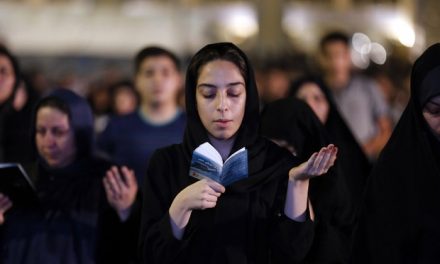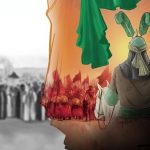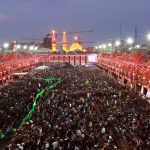
Thankfulness
The virtue of thankfulness is very much related to love for Allah (SWT) in Islamic spirituality. If you are thankful you will certainly love Allah because of all His favours and if you love Allah you will believe in Him and obey him. Thus, thankfulness is the core of imān (faith). It may not be accidental that in Arabic the terms used to signify ungratefulness and disbelief are identical, that is, kufr. Here are some verses of the Qur’an where a contrast is made between thankfulness and unthankfulness:
If you are ungrateful (takfur-u), indeed Allah has no need of you, though He does not approve ingratitude (al-kufr) for His servants; and if you give thanks He approves that for you. No bearer shall bear another’s burden; then to your Lord will be your return, whereat He will inform you concerning what you used to do. Indeed He knows best what is in the breasts.
So when he saw it set near him, he said, ‘This is by the grace of my Lord, to test me if I will give thanks or be ungrateful (akfur). And whoever gives thanks, gives thanks only for his own sake. And whoever is ungrateful (kafar) [should know that] my Lord is indeed all-sufficient, all-generous.’
Certainly We gave Luqman wisdom, saying, ‘Give thanks to Allah; and whoever gives thanks, gives thanks only for his own sake. And whoever is ungrateful (kafar), [let him know that] Allah is indeed all-sufficient, all-laudable.’
A very striking verse is to be found in the Chapter Man, where thankfulness (to Allah for His guidance) is considered to be identical with faith and to be unthankful is the opposite:
Indeed We created man from the drop of a mixed fluid so that We may test him. So We made him endowed with hearing and sight. Indeed We have guided him to the way, be he grateful or ungrateful.
Therefore, shukr (thankfulness) is a very significant concept. It is a primary issue related to the core of imān. It is also practical and uncomplicated. Moreover, if we are thankful, we can achieve many things as Allah (SWT) says in the Qur’an:
When Moses said to his people, ‘Remember Allah’s blessing upon you when He delivered you from Pharaoh’s clan who inflicted a terrible torment on you, and slaughtered your sons and spared your women, and in that there was a great test from your Lord.’ And when your Lord proclaimed, ‘If you are grateful, I will surely enhance you [in blessing], but if you are ungrateful, My punishment is indeed severe.’
Imagine a teacher who has a thankful student. That student appreciates the teacher and knows the teacher is doing a good job of helping him. Furthermore, the student declares that he is thankful, and then puts into practice what the teacher has taught him.
The teacher would love to teach this student whatever he knows, as the teacher would not feel that his knowledge is being wasted. This is the example of a thankful servant who in his heart appreciates, with his tongue declares, and with his body, practices. Allah (SWT) will give such a person more and more and He has no limits. The more He gives, the more you receive. In the Dua of Iftitāh we recite:
O the one that abundance of giving does not increase Him save generosity and bounteousness!
One might wonder how it is possible that Allah’s (SWT) generosity increases by giving. When Allah (SWT) gives you something and you are thankful and can maintain that state, your capacity to receive increases. There is no limit for divine generosity except our limited capacity. The more Allah (SWT) gives, the more capacity we have to receive, and so His Generosity accelerates into this infinite Mercy.
The concept of thankfulness has been explored by many Muslim scholars who have made various useful distinctions between the various types of thankfulness. According to Khājeh Abdullah Ansari in his book Manāzil al-Sā’irīn (The Stations of the Wayfarers), there are three main types of thankfulness:
- Thankfulness from the heart: knowing that something is a gift from Allah;
- Thankfulness with words: declaring that you are thankful for divine bounties;
- Thankfulness in practice: doing something with your hands, feet, eyes, etc., as acts of worship. This is practical thankfulness.
The first type of thankfulness is the most important, as it brings about the other two types. He also mentions that thankfulness consists of three main things:
- To know something is a gift: for example, one might know everything about health, but to know that health is a gift from Allah is to know something additional.
- To acknowledge that this is a gift from Allah: this means to admit that what one has been given is a gift, and that he/she is the recipient. Sometimes one might know something is a gift, but refuses to acknowledge it out of arrogance. One might think that he has earned it, or that he could live without it.
- To praise Allah for it.
Lastly, Khajeh Abdullah Ansari studies the notion of thankfulness and asserts that being thankful has different levels:
- Some levels are shared by ordinary people: they understand that there are some gifts from Allah that we are thankful for, and try to be pleased and praise Him.
- On higher levels, people are not only thankful for what they consider to be gifts that Allah has given them, but for whatever happens to them. Even a bad thing that occurs to a believer is not caused by a lack of love from Allah (SWT), and so a believer is thankful for that.
- Some people are very concerned with Allah’s presence: they feel no ease or pain as they do not have any time to think about whether they are in the state of ease or pain. This is the power of love. Similarly, if you are watching an interesting film, you might forget that you are hungry. Or if we are in the company of someone we love, we may forget the time and do not want the meeting to end. People who love Allah (SWT) to this extent are completely distracted and absorbed by His Essence. Khajeh Abdullah Ansari calls it the thankfulness of the elite.
Love and thankfulness are two intertwined concepts that can help us practically on our journey to self-improvement. Imam Khomeini in his book Forty Hadiths points out that the appearance of the effects of love and thankfulness become apparent in the heart, on the tongue and in the bodily acts and movements. As for the heart, one becomes filled with humility, awe, and love.
As for the tongue, the effects are among praise and glorification for Allah alone. As for the body, the effects consist of obedience and the use of the body for the sake of Allah. May Allah increase our love for Him by increasing our understanding of Him, and may He inspire us to be thankful in all situations.
Source: al-shia.org










